Azerbaijan–Turkmenistan–Uzbekistan: Blueprint for peace, regional unity Brotherhood in deeds
In his 2024 inaugural speech, Azerbaijan’s President Ilham Aliyev highlighted the Organization of Turkic States (OTS) as the key international organisation for Baku. He emphasised, “Our family is the Turkic world.”
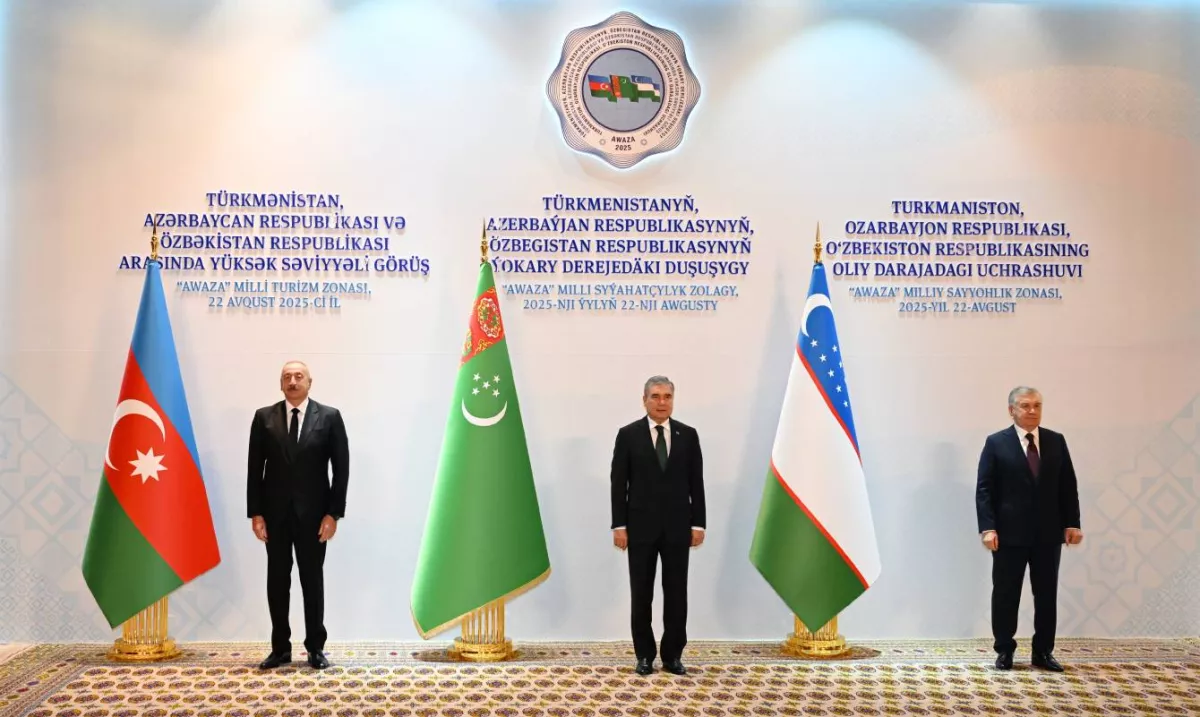
The historic meeting between the leaders of Azerbaijan, Turkmenistan, and Uzbekistan, held on Turkmen soil, on August 22, clearly demonstrated this spirit. Although the gathering wasn’t officially part of the Organization of Turkic States (with Turkmenistan participating as an observer), the focus on the Turkic connection was unmistakable. The strong sense of brotherhood emphasised by all sides truly embodied the “Our family is the Turkic world” motto.
President Ilham Aliyev’s working visit can be divided into two parts: Azerbaijan-Turkmenistan cooperation and the trilateral partnership between Baku, Ashgabat, and Tashkent.
In recent years, the relationship between Azerbaijan and Turkmenistan has shown impressive momentum. This is evident in their active joint efforts to revive the “East-West” transport corridor passing through both countries, as well as in improving the efficiency of the Middle Corridor.
In 2024, bilateral trade amounted to just under $390 million. From January to May 2025, this figure reached nearly $119 million.
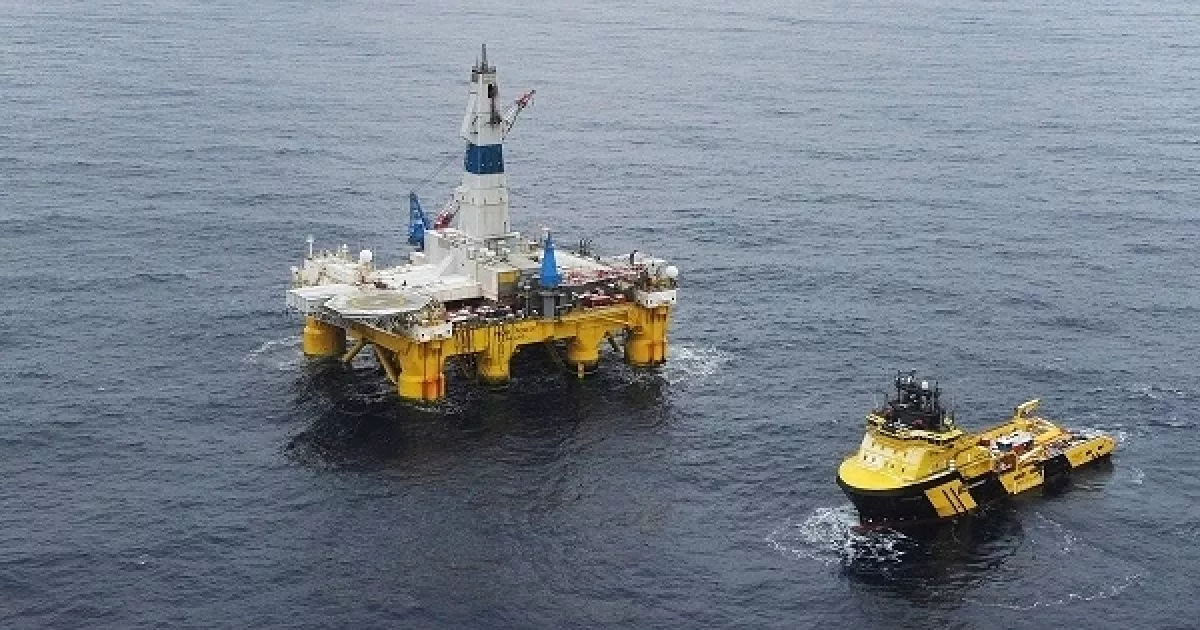
Among other indicators, it is worth noting that the volume of container shipments along the Baku–Turkmenbashi route has nearly tripled in recent years. The agreement signed in 2021 on the joint development of the “Dostlug” oil field in the Caspian Sea has opened up new prospects in the energy sector.
A month ago, during his visit to Azerbaijan, Gurbanguly Berdimuhamedov, Chairman of Turkmenistan’s Halk Maslahaty, described the bilateral relationship as brotherly—rooted in good neighbourliness, cooperation, shared values, and the close ties between the two peoples. He emphasised their readiness to harness their combined political, economic, and resource potential for the benefit of both countries.
Ilham Aliyev, highlighting the deep historical foundation of their connection, expressed the strong commitment of both Baku and Ashgabat to building a future together.
A symbolic moment of Berdimuhamedov’s visit to Azerbaijan was his visit to the liberated lands, where he was gifted a Karabakh stallion named “Dostlug.” For Turkmens, the horse is not just an animal but a spiritual value, and this gesture was a powerful expression of respect for their traditions.
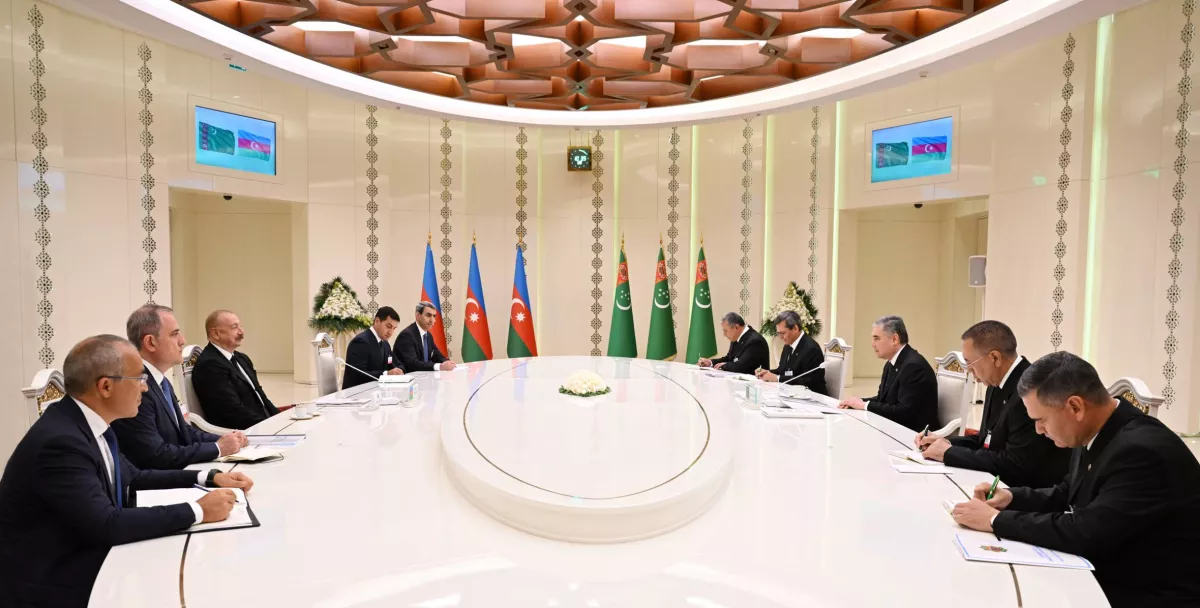
It’s no surprise that on August 22 Gurbanguly Berdimuhamedov reiterated that the strong mutual understanding between the two countries has deep historical roots.
Ilham Aliyev, describing the Azerbaijani and Turkmen peoples as true brothers, highlighted that Turkmenistan’s modern infrastructure — including its seaport, airports, and railways — combined with similar facilities in Azerbaijan, will create significant benefits when their efforts are joined.
The sides also noted that the countries consistently support each other in international organisations, including in connection with the UN General Assembly resolution on “Permanent Neutrality of Turkmenistan,” to which Azerbaijan joined as a co-sponsor.
Equally symbolic was Gurbanguly Berdimuhamedov’s presentation, on behalf of President Serdar Berdimuhamedov and the Turkmen people, of an Akhal-Teke stallion named “Taus” as a gift to Ilham Aliyev. The East has always been known for its love of symbols, and in this case, the fraternal paradigm, combined with a geopolitical dimension, adds a special depth to the relationship.
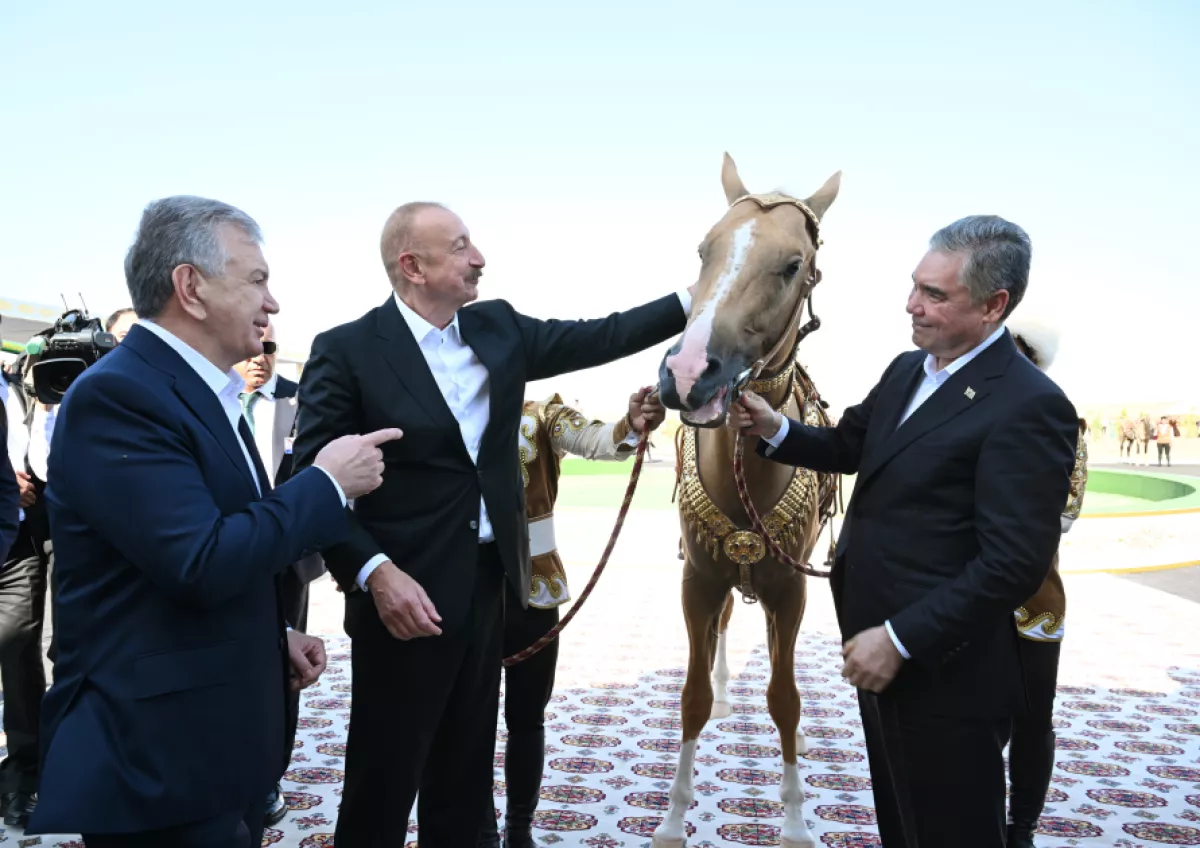
These facts clearly demonstrate the unique mutual understanding between Baku and Ashgabat. The signing of the twinning city agreement between Arkadag and Fuzuli is also symbolic.
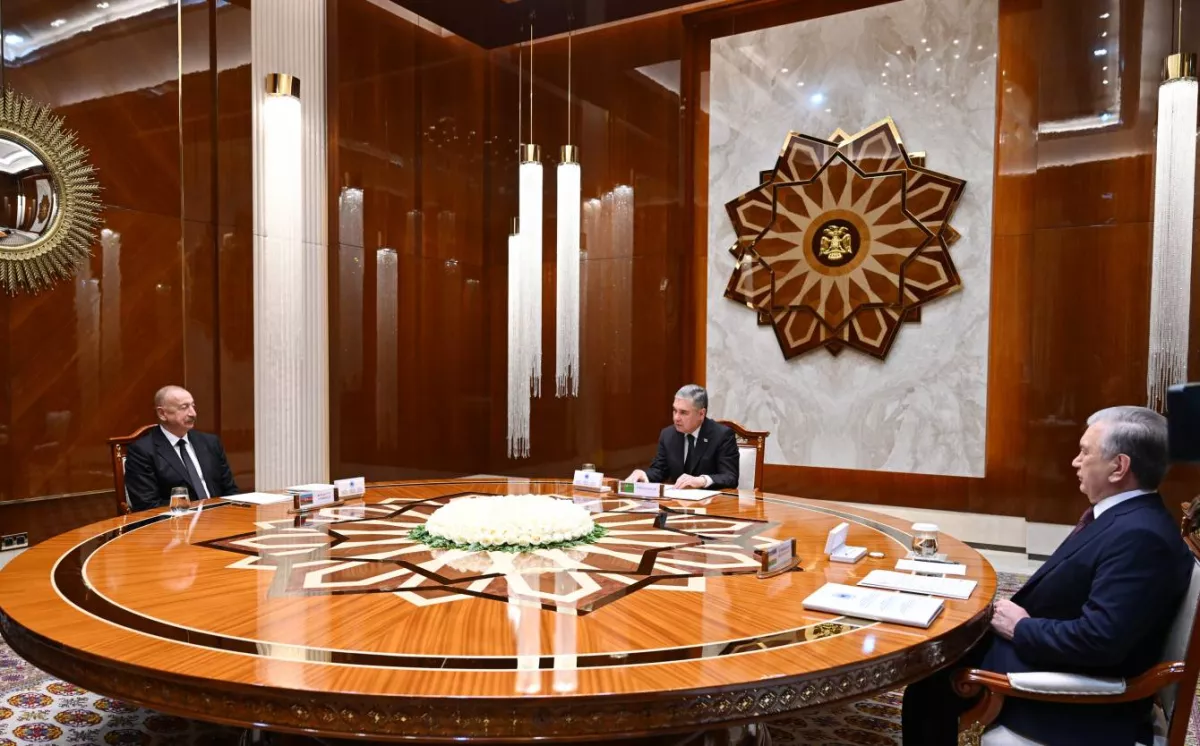
Regarding the trilateral meeting with the participation of Uzbekistan’s President Shavkat Mirziyoyev, Gurbanguly Berdimuhamedov highlighted the agreements to expand cooperation in connecting transport corridors linking Europe and Asia, including through the development of infrastructure in Central Asia and the Caspian region.
Ilham Aliyev pointed to the strategic position of the three countries at the crossroads of East and West, North and South, which opens up new opportunities for transport and transit cooperation — including the development of the Middle Corridor and the expansion of ports and railways.
Shavkat Mirziyoyev stressed the importance of boosting transit routes, maximising the potential of the ports in Baku and Turkmenbashi, and building modern logistics infrastructure. The leaders also explored opportunities for developing hydrocarbon resources and expanding electricity exports.
A special mention should be made of Gurbanguly Berdimuhamedov’s initiative, announced during his visit to Fuzuli: the construction of a mosque as a gift from Turkmenistan. According to President Aliyev, the architectural design is already completed, and the foundation is expected to be laid soon.
The president also mentioned the sewing factory in Khankendi — “a great gift from the fraternal people of Uzbekistan to Azerbaijan and to the reviving Karabakh region” — as well as the school built in Fuzuli at the initiative of Shavkat Mirziyoyev. Aliyev described all of this as “brotherhood not just in words, but in deeds.”
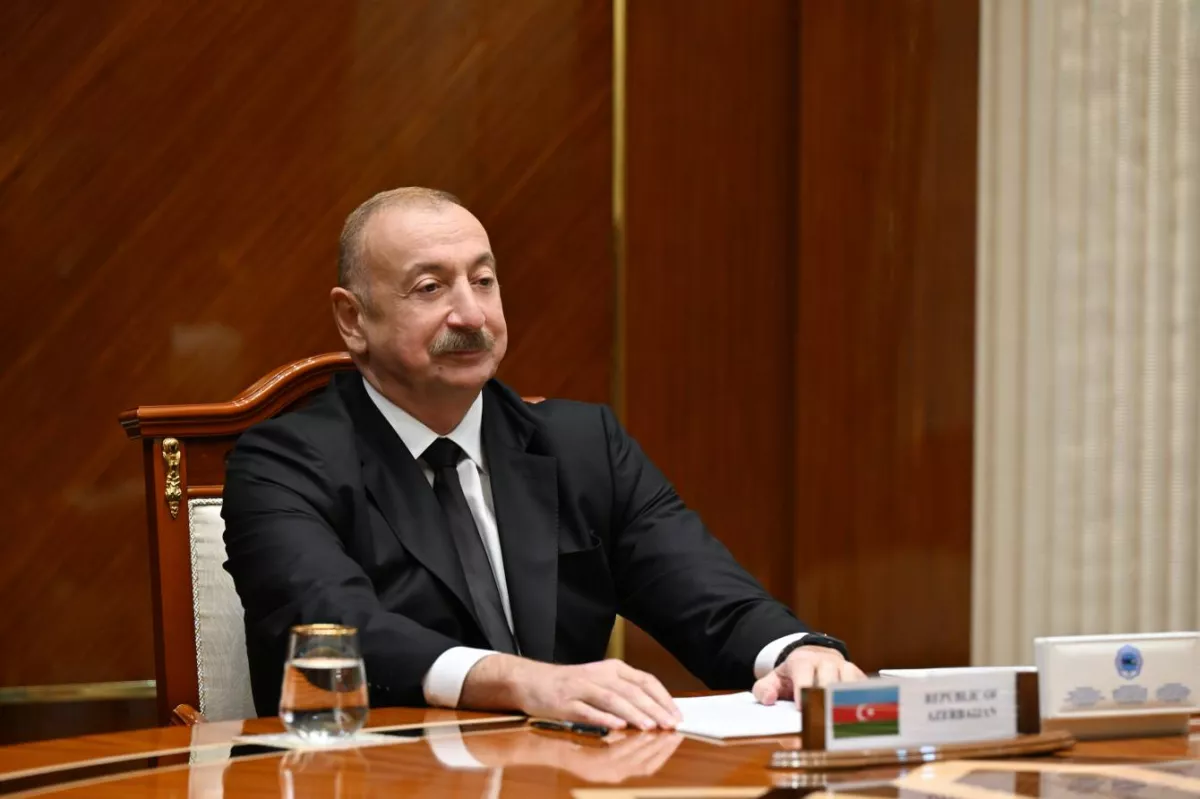
The head of state announced that government agencies have been instructed to prepare proposals on specific areas of trilateral cooperation.
“And I have no doubt that all these instructions will be implemented in a timely manner,” he emphasised.
Thus, it can be stated that Azerbaijan–Turkmenistan relations have reached a new level, with the horizons of cooperation between Baku and Ashgabat expanding. At the same time, a new chapter has been opened in the development of trilateral cooperation between Azerbaijan, Turkmenistan, and Uzbekistan.
All of this outlines new contours of the regional architecture — effectively forming a unified space that links Central Asia with the South Caucasus (represented by Azerbaijan and Georgia). This broader region is becoming a key transport and logistics hub, whose significance extends far beyond its own geography.
In the context of global geopolitical turbulence, it is precisely the "corridor context" that is emerging as a crucial tool for ensuring stability and security. The experience of recent years in the cooperation between Azerbaijan and Central Asia clearly confirms this.








